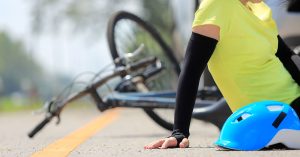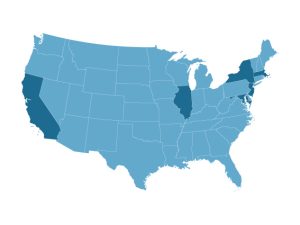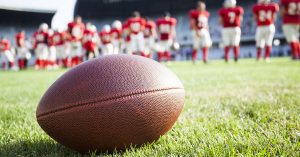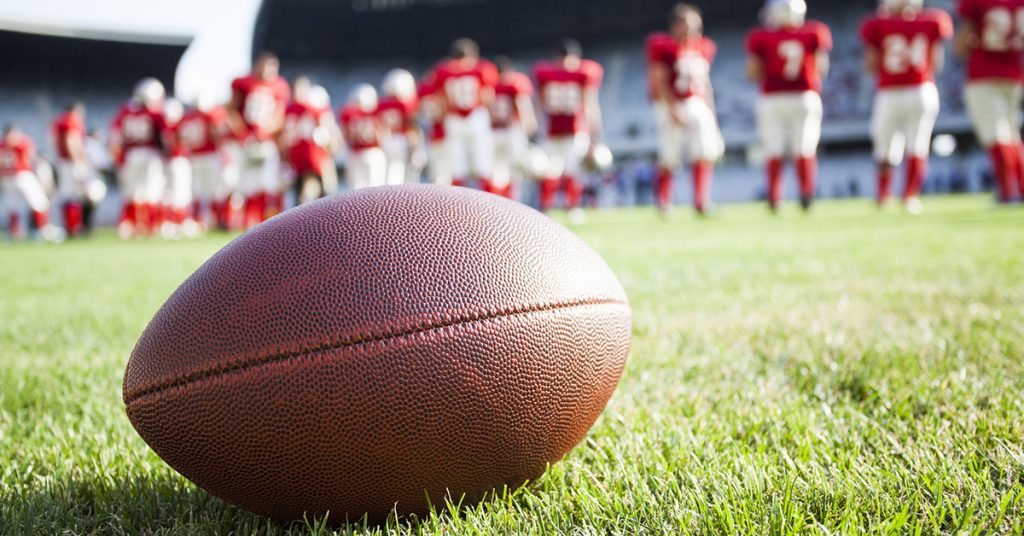Posts Tagged ‘Boston traumatic brain injury lawyer’
Brain Injury Awareness Month: Would You Recognize the Symptoms of a Concussion?

After a car accident is a critical time to seek medical care and screening for a concussion.
March is Brain Injury Awareness Month. Nearly 12 years ago, Massachusetts lawmakers passed legislation to develop a concussion safety program for high school athletes. Before they play, student-athletes and their parents must now learn about concussion symptoms. If students are injured, they must follow step-by-step guidelines for recovery. The goal is to make sure students fully heal from concussions.
Just as students have learned about concussions, Brain Injury Awareness Month offers others a chance to learn.
These are essential lessons, helping us care for ourselves and our families. The sooner one identifies potential concussion symptoms, the sooner they can seek a medical evaluation and begin rest and recovery. Below, we write about concussions, symptoms and high-risk situations when one may consider seeking a medical evaluation as a precaution.
What is a Concussion?
A concussion is often called a mild traumatic brain injury or “mild TBI.” A concussion may follow a bump, blow or jolt to the head, or a hit to the body that causes the head and brain to move quickly back and forth, according to the Centers for Disease Control and Prevention (CDC).
There may be no visible bruising, skull fracture or head injury, but the sudden movement can impact the brain’s function.
When one suffers a concussion, they may experience a range of symptoms impacting their health. It can be very difficult to read the symptoms, which may include one or more symptoms:
- headaches
- memory loss
- feeling groggy
- difficulty sleeping (or sleeping too much)
- mood and behavior changes
- balance problems
- slurred speech
- dizziness
- nausea or vomiting
- confusion
- decreased coordination
- sensitivity to light
- irritability
- In adults, one pupil may appear larger than the other.
Symptoms may appear right away or in the hours after a concussion, or they may be delayed a few days and weeks.
One misconception is a person will lose consciousness if they suffer a concussion. This is not always true. In fact, on the sports field, one coach said athletes only lose consciousness in about 10 percent of all concussions cases (Source: Heads Up Video: What is a Concussion?, CDC).
When to Consider Seeking Medical Care
As important as it is to learn about concussion symptoms, there are also times when you should just receive medical care as a precaution. This includes after children’s injuries, sports injuries, car accidents, falls or bicycle accidents.
Children and Student-Athletes

Respond promptly if you suspect your child has sustained a concussion.
Start learning now before you suspect a possible injury. Look to your child’s pediatrician and school for information on concussion prevention, symptoms and how to respond to a potential concussion. This is important because your child’s brain is going to support them throughout their life and by understanding a few basics, you can minimize their risk of suffering an injury. But if your child does suffer a concussion at some point, what you learn now will help you be ready to help them receive care and fully heal before they start their full routines up again. To help you get started, read our page on the Massachusetts sports concussion safety law and helmet laws for children. Another resource is the CDC Heads Up web page.
Motor Vehicle Crashes
Motor vehicle crashes are a leading cause of concussions and traumatic brain injury. The violent force of a collision can cause many injuries, from whip-lash to broken bones and head injuries. One can suffer a concussion in crashes at any speed and unlike other types of injuries, see no visible signs. One does not have to hit their head to sustain a concussion.
It can be hard to know whether you were injured after a car accident, so it is best to be proactive and call your primary care physician or visit a hospital emergency room.
Falls
When someone falls and hits the ground, they can suffer a concussion and it may be hard to recognize the signs, especially if the person is alone.
Older adults and younger children are more vulnerable to suffering falls. They are also at the highest risk for going without treatment. Consider how difficult it is for many adults to recognize they may have suffered a concussion; then think about young children, who may have limited speech. When it comes to young children, look for signs of discomfort, such as constant crying, trouble sleeping or the child may not eat. Contact your child’s pediatrician so they can advise you on the next step.
As for older adults, the CDC reports more than 34,000 adults age 65 and older died in falls in 2019. Many of these falls involved TBI and broken bones.
If you have an older relative or friend, talk to them about the importance of seeking medical care after any type of fall. Immediate treatment can help them identify whether they have sustained a concussion or other injuries. This puts their primary care physician in a good position to help them manage their recovery, with their full understanding of the person’s medical conditions and what medications they take.
Bicycle-Related Head Injuries

Cyclists can suffer many serious injuries in a crash. Always visit a hospital emergency room as a precaution.
Make a plan for safety. Should you ever fall on your bike or be involved in a bicycle accident, commit to seek immediate medical care right away. Have a doctor evaluate whether you sustained a concussion.
Medical care is critical for cyclists. In addition to concussions, cyclists are vulnerable to suffering broken bones around the face, jaw and fractured teeth in crashes, along with other injuries. While you may try to treat your own pain, a medical exam is the best first step to determine the source of all your swelling and injuries.
As a cyclist, you can take an important step and protect against head injury by wearing a helmet. When cyclists wear helmets, the reality is they may still suffer injuries in a collision. But cyclists are more likely to survive a bike crash without the cognitive, physical or mental complications of a severe and traumatic brain injury. This is critically important because it improves one’s long-term chances for making a full recovery.
According to the CDC, helmets reduce the risk of head injury by absorbing much of the impact energy from a fall or a bicycle accident. Helmets protect the skull and brain from more severe injury.
After a Concussion, The Importance of Follow Up Medical Care
Another time to consider medical care is in the days, weeks and months following your initial treatment for a concussion. It is important that you fully heal. If you suffer a second concussion while you are still recovering, you are at risk for second impact syndrome and long-term complications.
The CDC reports many concussions are not fatal. Many people recover from concussions within a few weeks, with rest, plenty of sleep and patience.
But some injuries take more time. The National Institute of Health reports one study found nearly a quarter of patients struggle with physical and mental problems related to a concussion a full year later. Another study tracked 831 patients at 11 major trauma centers across the country and found not every patient receives follow-up care.
- Within three months of their injury, fewer than half of the patients – 44 percent – had followed up with a health care professional.
- Notably, when patients visited medical centers with dedicated TBI clinics, they were more likely to receive follow-up care.
- Patients who had more serious injuries (those who had CT Scans that showed tissue damage) had a higher rate for follow-up care, but even then only 61 percent sought follow-up care.
There are many reasons patients may not follow up after a concussion. This study noted just 42 percent of patients received educational materials as they left treatment; just 27 percent received a follow-up call from the hospital.
Make it your priority to follow up with your primary care doctor for as long as it takes.
Follow your doctor’s instructions for every phase of your recovery: when you are ready to drive and go back to work. Follow any limits your doctor sets, such as restricting cell phone use.
Take the family member along to your doctor’s appointments. This gives your loved one a chance to learn about the symptoms of a concussion and how you should progress.
Ask a loved one to play an active role in your treatment and help you observe your recovery. You may need help tracking activities at times, such as how many hours you sleep or how many times you contact your doctor with concerns. Write down any medical instructions you receive, or print messages from your online medical records, so you and your loved one can review them together over the next few months.
Free Legal Consultation – Boston TBI Attorneys
At Breakstone, White & Gluck, our Boston personal injury lawyers have over 100 years combined experience representing those who have been seriously injured or killed by the negligence or wrongdoing of others.
Our lawyers have extensive experience representing clients who have suffered concussions and traumatic brain injuries as a result of someone else’s negligence, helping them recover compensation for their medical expenses, loss of future income and other damages.
Our attorneys represent clients in Boston, Cambridge, Arlington, Somerville, Everett, Quincy, Milton and across Massachusetts. If you have been injured, learn your legal rights. For a free legal consultation, call 800-379-1244 or 617-723-7676 or use our contact form.
Massachusetts Concussion Legislation Would Ban Students In Grade 7 or Younger from Playing Football
Should students have to wait until they finish 7th grade to play football in Massachusetts? Lawmakers are being asked to consider legislation to delay the start of play to protect players from concussions.
“An Act for No Organized Head Impacts to Schoolchildren,” has been filed by State representatives Paul A. Schmid III (D-8th Bristol) and Bradley H. Jones Jr. (R-20th Middlesex). The legislation would ban children in 7th grade or younger from playing or practicing any form of organized tackle football. Schools would be held accountable and face fines for violations:
- $2,000 for each violation
- $5,000 for subsequent violations
- $10,000 when serious physical harm result to participants
Children would be allowed to play flag football or any form of football which does not involve tackle play. The proposal does not include any other sport.
Causes of Concussions
The Centers for Disease Control and Prevention (CDC) define a traumatic brain injury (TBI) as a disruption to the brain caused by a blow or jolt to the head. Concussions are considered a mild TBI, which can result in a brief change of mental alertness or consciousness. A severe TBI can result in a longer period of unconsciousness or mental change.
Symptoms may not be immediately evident after a concussion, especially if the person or those around them are not familiar with the symptoms, which can include an inability to think clearly, memory problems, feeling dazed and mood, behavior or personality changes. Headaches, nausea and vomiting can also set in.
Beyond the sports field, falls are the leading cause of concussions, according to the CDC. Adults over age 65 and children under 14 are most likely to suffer a fall leading to a head injury. Car crashes are the third leading cause of concussions, followed by being struck in the head by an unspecified object, such as in a construction site accident or by violence.
Concussions can also happen on the sports field. Not every contact necessarily results in a concussion, but to identify injuries, Massachusetts and other states have already passed concussion education and training laws. Known as “return to play” laws, these require high school and middle school students to be examined by a medical professional before they can participate in sports again.
Research on Concussions and the Impact on Younger Football Players
New research shows there is a measurable impact when younger children play football. In a study of 26 football players – all age 12 – Wake Forest researchers found changes in the corpus callosum, which joins the two sides of the brain and integrates cognitive, motor and sensory functions. The players underwent MRIs to examine the changes prior to the three-month season and three months after the season concluded. They were compared to 22 other students who did not participate in contact sports.
Players who suffer a concussion need proper rest and treatment so they can properly heal and to reduce the chance for another injury. Researchers have documented this risk; one study found high school and college students who sustained concussions were four to six times more likely to suffer a second injury (Source: McGill University in Montreal).
Concussion Legislation Filed in Other States

Lawmakers in Massachusetts and five other states have proposed banning tackle football for children younger than 12 or for those in seventh grade or younger. Data from Shape America.
Massachusetts isn’t taking the field alone on concussions. At least five other states are also debating tackle football bans for children under age 12. These states include Illinois, California, Maryland, New York and New Jersey, according to Boston.com. But none of the proposals are on track to reach state governors.
All 50 states already have “return to play” laws aimed at reducing youth sports-related concussions, according to the National Conference of State Legislatures. Washington state was the first to pass such a law in 2009. By 2015, every other state had enacted a similar law.
In most states, these laws mandate concussion awareness training and education to prevent concussions among student athletes. According to Shape America, 48 states require students suspected of having concussions to sit out at least 24 hours.
Arizona and South Carolina allow students back on the field the same day with a doctor’s approval.
Passed in July 2010, the Massachusetts concussion law requires parents, volunteers, coaches and school nurses to receive specialized concussion awareness training. This is to help them recognize concussion symptoms and help students receive treatment as soon as possible.
As in other states, the Massachusetts law requires medical clearance before students can return to sports. Schools are then required to maintain detailed record-keeping related to a student’s injury and progress in the classroom and on the field. The law is M.G.L. ch.111 §222. The Code of Massachusetts Regulations is 105 CMR 201.000.
All middle and high schools which offer sports through the Massachusetts Interscholastic Athletic Association (MIAA) must follow the concussion safety law.
More NFL Players are Self Reporting Concussion Symptoms
 Professional football players face a high risk for concussions, far greater than most of us. But Rob Gronkowski’s concussion a few weeks ago was a reminder that concussions can happen when we least expect them, even in the middle of a big game. And when they do, the game must stop.
Professional football players face a high risk for concussions, far greater than most of us. But Rob Gronkowski’s concussion a few weeks ago was a reminder that concussions can happen when we least expect them, even in the middle of a big game. And when they do, the game must stop.
Much has changed over the past decade, as hundreds of former NFL players have sued over head injuries. Every state now has a concussion protocol for student athletes. In Massachusetts, students, coaches and parents are now trained to recognize concussion symptoms and how to respond. But others should also be aware of the risks. Beyond the playing field, concussions can happen in car accidents, construction accidents, falls and other situations.
Concussions are a mild Traumatic Brain Injury (TBI) which are often caused by an impact to the head. Concussions can be hard to recognize at first, with some initial symptoms mirroring the flu.
According to the Centers for Disease Control & Prevention (CDC), symptoms include:
- Headache or pressure in the head
- Temporary loss of consciousness
- Nausea and vomiting
- Fatigue and dizziness
- Confusion
- Slurred speech and/or a delayed response
Other symptoms may take a few hours or days to show, including poor concentration, memory problems, personality changes and sleep disturbances.
The NFL has specialists watch players for concussion symptoms. Last year brought a 16 percent increase in concussion reports. Yet there was one positive. Players self reported and initiated 28 percent of concussion evaluations in preseason and the regular season. This was up 9 percent. The NFL released these preliminary figures in January.
Though it was hard to see the Patriots fall in the Super Bowl, the increase in self-reported concussions is still a win. Here are some tips for concussion prevention beyond the football field:
Sports
Passed in 2010, Massachusetts’ concussion safety law requires students, parents, coaches and anyone involved in high school sports to be trained on how to identify the symptoms of a concussion. Students must be taken out of the game if they are injured and cleared by a doctor before they can return. Schools are required to report the number of concussions to the state.
This law provides a good foundation for educating the public about concussions and will protect students. If you are not a parent or student, you can find information about concussions online. The Mayo Clinic offers this resource.
Car Crashes
A high-impact traffic crash can cause head injuries and bruising you may not immediately see. Always receive medical treatment after a car accident. If you were traveling with a young child, it is essential. They may not be able to communicate the nature of their injuries. This is critical because car accidents are the leading cause of TBI-related deaths among children and young adults ages 5 to 24, according to the CDC.
Falls
Falls are the leading cause of TBI, with children and the elderly the most vulnerable, according to the CDC. Nearly half – 47 percent – of all individuals with TBI injuries who go to the emergency room, hospital or die have fallen.
There are a few steps you can take to prevent a concussion from being left untreated.
Adults who care for elderly parents can talk to them about the risks associated with falls and symptoms of a concussion.
First, let your parent know they should visit their medical doctor or an emergency room immediately after a fall. Then, do not assume they will. Many people are reluctant and unsure about going to a doctor. Let your parent know they can always call you and you will drive them.
Parents can protect young children by gating off staircases and laying down slip guards to prevent slips and falls. This is especially important for wooden staircases.
Stay informed about concussion policies at schools and daycare programs. Make sure your emergency contact information is up to date so the school can always reach you. On playgrounds, make sure your child is playing over soft material, not pavement. Give them an extra hand when venturing on new equipment for the first time. Steer them toward something else if they are not quite ready.
About Breakstone, White & Gluck
The Boston personal injury lawyers at Breakstone, White & Gluck specialize in representing clients in cases involving traumatic brain injuries. For a free legal consultation, contact our firm at 800-379-1244 or 617-723-7676 or use our contact form.



